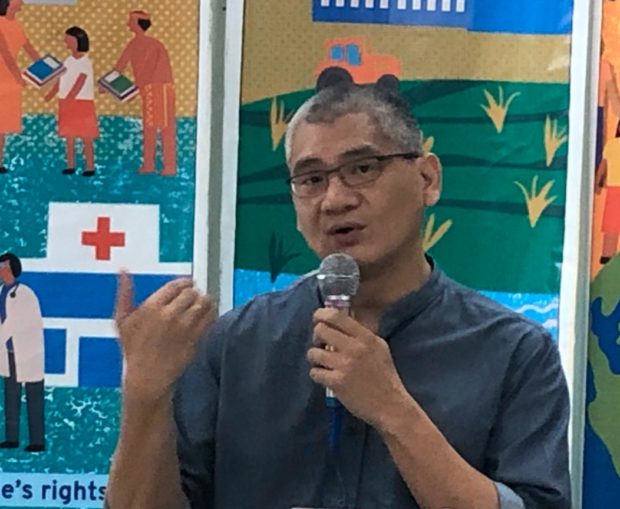Agri crisis, employment true gauge of economic growth — think tank

MANILA, Philippines — The government should address the country’s agricultural crisis and unemployment as these indicate the “real” economic growth, a research group said Friday.
IBON Foundation executive director Sonny Africa said overlooking these two factors are the reason for the country’s sluggish economic growth.
“The reason for the slowing economy is the failure of the government to give attention to the country’s agriculture and industry,” Africa said in a forum.
Africa pointed out the basis of growth should be based on the public’s condition before speaking of numbers.
“Ang pamantayan namin ng pagunlad kasi yung kalagayan ng nakararami. Sa sitwasyon na napakarami ang walang trabaho, at even sa may mga trabaho napakababa ng kita, yun ang pamantayan namin ng pag-unlad,” he said.
(Our basis of progress is the condition of the many. A situation where there are a lot of people without jobs and even those with jobs have low income, that’s our basis of progress.)
“Sa amin, bago pagusapan yung number, dapat itarget, palakasin ang agrikultura, palakasin ang manufacturing. Dapat suportahan nang lokal na industriya, suportahan nya yung local manufacturing. Kung lumaki yan, susunod na din ang economic growth,” he added.
(Before we talk about the numbers, the one that should be targeted is to strengthen agriculture and manufacturing. There is a need to support the local industries. If that increases, then the economic growth will follow.)
The Philippine Statistics Authority (PSA) recently reported the Philippine economy grew 5.9 percent in 2019, its slowest pace in eight years.
IBON Foundation said the growth in the agricultural sector dropped from 4 percent in 2017 to 0.9 percent in 2018 then slightly increased to 1.5 percent in 2019.
The group stressed the agriculture sector’s share in the national budget is only 3.5 percent of the whole, its lowest since 2004 at 3.3 percent, showing how the government “continues its neglect and low prioritization of agriculture.”
IBON also pointed out the decline of growth in manufacturing from 9.4 percent in 2017 to 4.9 percent in 2018 to just 3.8 percent in 2019.
“This is because domestic consumption and exports have weakened amid a protracted crisis and increasing protectionism in the global economy,” the group said.
“Ang totoong target, hindi dapat growth percent, ang totoong target, mabawasan ang mahirap, mabawasan ang walang trabaho sa pamamagitan ng pagpapalakas sa agrikultura, paglakas ng industriya,” Africa said.
(The real target shouldn’t be growth percent but the aim to reduce poverty, reduce unemployment by strengthening the agriculture sector and industries.)